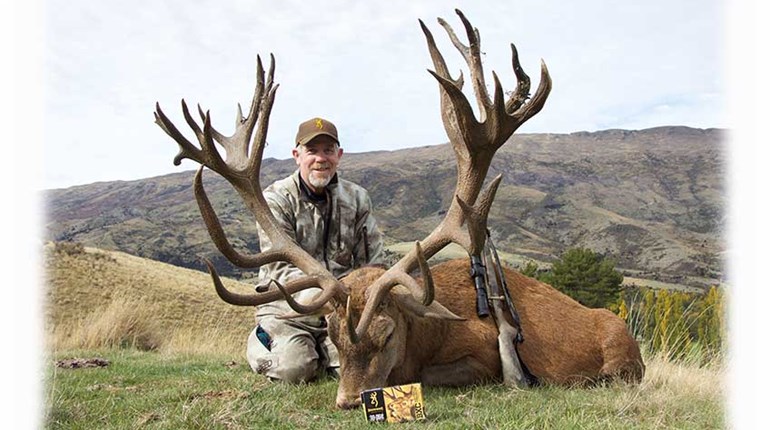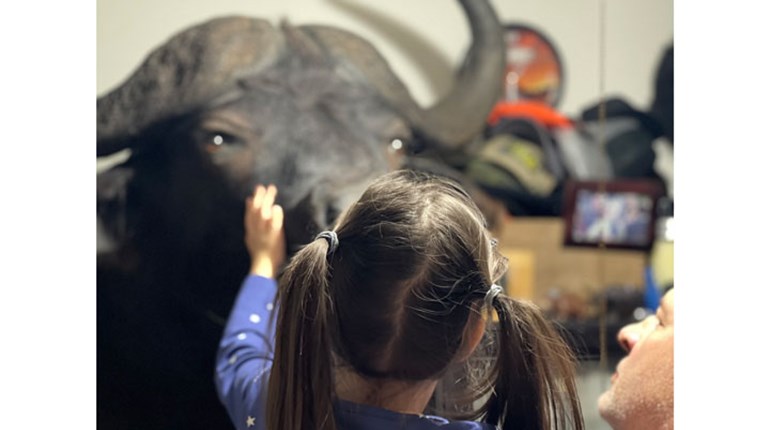The headline read, “Study: Animal-based proteins can lead to early death.” Sounded like a mouthful, so I read the story. It was in The Washington Post, and it suggested middle-aged folks who eat lots of meat and dairy products could be on the path to an early grave. That’s the take-away from a research project released March 4 in the journal Cell Metabolism. The study tracked thousands of adults across two decades. It determined that folks who consume a diet high in animal-based proteins are several times more likely to die of cancer or diabetes than contemporaries with low-animal-protein diets. That’s a risk factor comparable to smoking.
Naturally, it’s what’s behind the headline that demands our attention as hunters.
As I read on, I was struck by quotes from a study author, Valter Longo, a professor of gerontology at the University of Southern California. “The great majority of Americans could reduce their protein intake,” he said. “The best change would be to lower the daily intake of all proteins, but especially animal-derived proteins.” Okay, as director of USC’s Longevity Institute, professor Longo’s view certainly deserves attention. Still, I was struck by his reference to “animal-based” proteins.
Then I read the caveats. While the study suggests eating too much animal-based protein during middle age is detrimental to human health, eating more animal-based protein if you’re older than 65 actually could be beneficial. The problem is, exactly how much protein belongs in our diets is a topic of debate; has been for years. What’s more, how can folks older than 65 count on being able to eat more protein when they’ll probably be missing teeth and unable to chew it?
A nutrition expert quoted by The Post, Marion Nestle, a public-health professor at New York University, said the study raises as many questions as it answers. The study's authors do not present a compelling argument, she said. Choices made by us all beyond protein consumption play roles in our longevity. Lifestyle choices by participants in the study outside protein consumption, she said, could have played a role in the results. “I’m also puzzled by the idea that there is a significant difference between the effects of protein from animal and vegetable sources,” said Nestle. “Protein is not, and never has been, an issue in American diets, and the data presented in this study do not convince me to think otherwise.”
So there it is: The study singles out animal-based protein as bad, and suggests vegetable-based protein found in nuts and what not is good.
Regardless, let’s see how much protein we’re talking about here. The study defines a high-protein diet as one with at least 20 percent of a person’s daily intake coming from protein; a low-protein diet is defined as less than 10 percent. The Post reported that those of us in middle age are better off consuming only about 0.8 grams of protein per kilogram of body weight per day, about par with advice from health agencies these days. The reporter then displayed some math, which was good for me because I don’t get the whole metric thing. “For a 150-pound person, that means about the equivalent of the protein in an 8- or 9-ounce piece of meat or several cups of dry beans.”
I don’t like the idea of eating dried beans for dinner, so I did my own math—no online metric calculator needed. I figured a 150-pound man could likely eat an 8-ounce steak for dinner, plus a potato and probably a salad. But in that steak, he’d account for his entire daily allotment of animal-based protein. That means no eggs for breakfast; no cereal, either, unless he wants to eat it dry with no milk. It also means no turkey-and-Swiss sandwich for lunch. Only the steak, as far as protein goes.
The study advice also doesn’t account for what hunters eat regularly: game meat. Remember, venison is lower in fat than beef; it contains three times less cholesterol than beef. And it’s lower in calories. (I’m not discounting beef, folks. I enjoy a good meal at a steakhouse as much as the next guy, but I eat far more venison and waterfowl and upland birds than I do beef. In fact I don’t even buy beef anymore. Why would I when I stock my freezer with moose, elk and deer meat?) Anyway, 4 ounces of porterhouse beef steak contains about 310 calories; the same 4 ounces of venison contains only 125 calories, and less fat, of course.
Valter Longo said too many humans eat twice or three times the amount of protein we need, and too much of it comes from animals rather than nuts, seeds and beans. Sounds like what he’s really saying is we need to lay off meat-eating. But if you’re like me, you like it. Plus, don’t forget to account for the sweat you spill hiking to and from your hunting spot. You earned that venison steak on the grill. Eat it. But remember, everything in moderation.




































